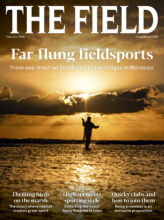No one should leave school without knowing what BROM 4689 stands for, says Max Hastings. reintroduce the magic of adventure to modern history
I have loved history, especially English history, all my life. Today, however, this noble study has sunk into decay, thanks to dreary teaching and a politically correct exam syllabus that the best efforts of Michael Gove may be unable to undo. I hated school but was lucky enough to be taught by some inspirational men who told tales of battles, sieges and endless English triumphs over such lesser races as the French.
I could from memory write a passable essay on Edward I’s Quo Warranto tribunals, which dated from the 1278 Statute of Gloucester. Why has that story stuck? Because my teacher back in 1960 described how Earl Warenne, ordered by the King’s justices to show by what right he held his lands, drew forth his rusty sword and waved it aloft.
Contrast that with the experience of my poor daughter, studying history at A level, who was obliged to major on the slave trade and Victorian poor law. No battlefield triumphs; no Wolfe reciting Gray’s Elegy before taking Quebec; no Wellington deploring his soldiers cheering in action for being “too nearly an expression of opinion”; no Napier (albeit apocryphally) sending a one-word message after conquering Sind: “Peccavi”.
How intolerably dull history can be under the dictatorship of the left and dead hand of the NUT. Just now I am involved in an uphill struggle to challenge some of the myths about the First World War perpetrated first by Siegfried Sassoon and since by generations of woolly minded academic iconoclasts.
Prominent among these is the notion that 1914-18 represented qualitatively the worst thing soldiers have ever done to each other. This is tosh. Soldiers who endured the Thirty Years’ War of the 16th century, followed Napoleon to Moscow in 1812 or fought on the Eastern Front from 1941-45 would have laughed at the notion that the First World War was a uniquely ghastly human experience.
All wars impose dreadful suffering – only the scale varies. US writer Paul Fussell wrote a highly influential book back in 1975, in which he argued that the First World War had been so dreadful that it was fit matter only for literary rather than historical exploration. This twaddle has commanded respect ever since.
The best riposte I know came in a letter that a distinguished and highly cultured veteran, Charles Carrington, wrote to a friend of mine after reading Fussell’s book 40 years ago: “I saw far more fighting than Siegfried Sassoon, or Edmund Blunden, or Robert Graves,” said Carrington, “far more than Liddell Hart, four or five times as much as Wilfred Owen, and I didn’t go home with a nervous breakdown. [But] I fear the damage is done, and the myth of the 1930s has prevailed…
“When I meet some clever young scholar from Queen’s or Keble who has written on the First World War and say to him, ‘My dear chap, I was there at the time and it wasn’t at all as you describe…’ a shade of disbelief passes over his features as he says to himself, ‘the old boy’s growing soft. He’s losing his memory.’ Does anybody care any longer about the silent millions who did not want the war, cause the war or shirk the war, and did not lose the war, who had never heard of these lugubrious poets with their self-pitying introversion?”
Modern history teaching wallows in the plight of victims at the expense of proclaiming the achievements of heroes. It identifies causes for guilt rather than pride and peddles a version of the past that blurs our sense of national identity rather than sharpening it.
I am not arguing that we should perpetuate a rose-tinted vision. Indeed, I often find myself seeking to correct the delusion, for instance, that Britain’s rural past was an idyll. Anybody who reads Jane Austen knows how ghastly was the social imprisonment in which her characters were trapped. George Eliot’s and Thomas Hardy’s novels emphasise how vastly life has improved for rural dwellers.
The right sort of teaching makes the study of the past fun. Today’s educationalists recoil from acknowledging that many men have enjoyed going to war; indeed, in our risk-averse society they resist the magic of adventure, which is properly part of the heritage of right-thinking young people.
My father brought me up to think of Britain’s past as a pageant of adventures, which I should aspire to follow when I grew up. Beyond history textbooks, my generation read obsessively the works of GA Henty (By Pike and Dyke; Under Drake’s Flag; The Cornet of Horse and about 40 similar terrific titles), John Buchan and H Rider-Haggard.
Now, teenagers are likely to read Michael Lewis’s Liar’s Poker before settling not for a thrilling quest to King Solomon’s Mines but some unspeakable role in investment banking. If I ruled the world, nobody would be allowed to leave school without knowing what BROM 4689 meant. What? You don’t know, either? This was the acronym by which generations of school children were taught to recall Marlborough’s great victories in 1704/6/8/9: Blenheim, Ramillies, Oudenarde, Malplaquet. Forget the Great Reform Bill, if you must. But as a proud Englishman, cherish the memory of BROM as it deserves.
Max Hastings is a British journalist, editor, historian and author.





